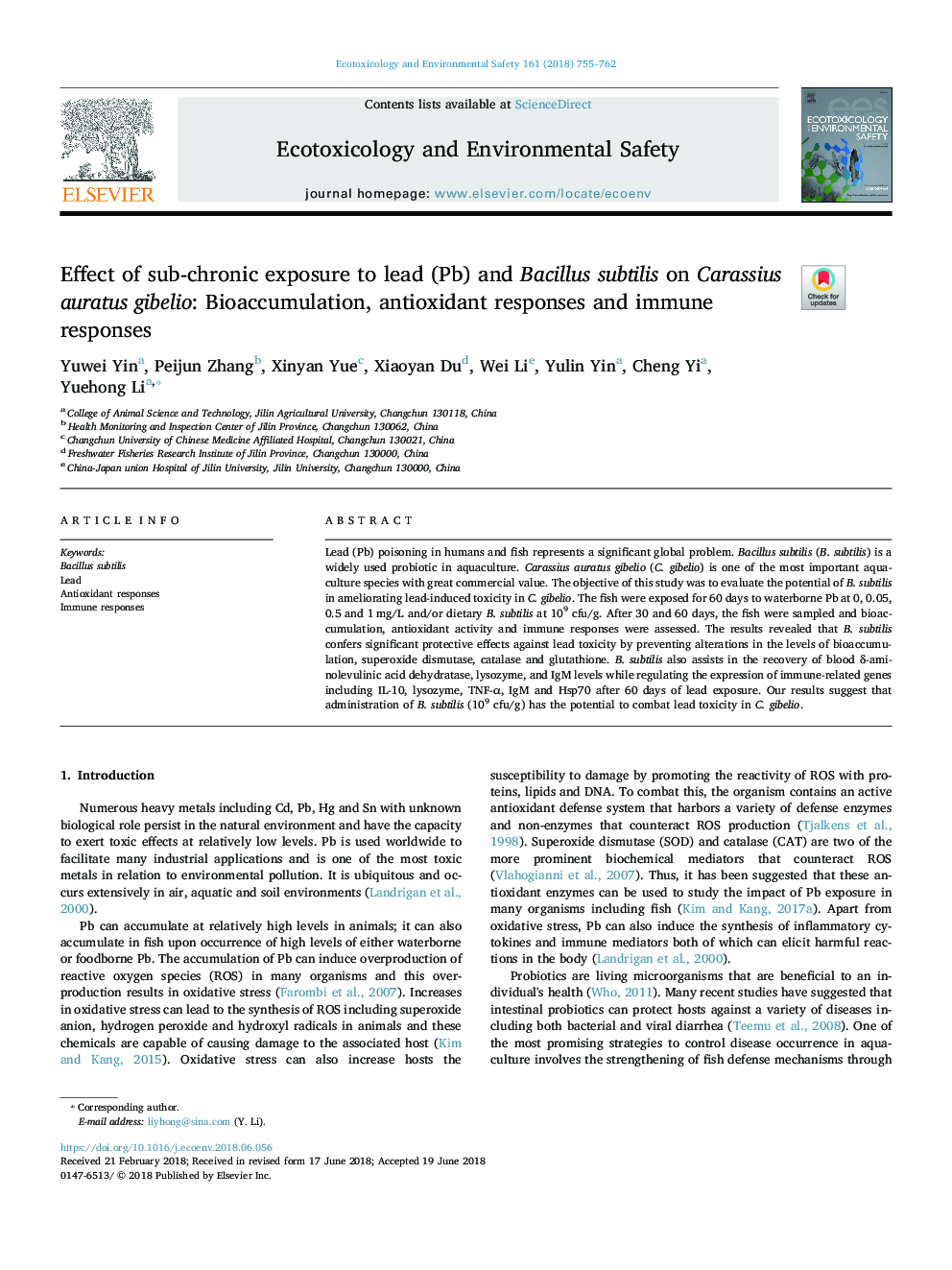| Article ID | Journal | Published Year | Pages | File Type |
|---|---|---|---|---|
| 8853623 | Ecotoxicology and Environmental Safety | 2018 | 8 Pages |
Abstract
Lead (Pb) poisoning in humans and fish represents a significant global problem. Bacillus subtilis (B. subtilis) is a widely used probiotic in aquaculture. Carassius auratus gibelio (C. gibelio) is one of the most important aquaculture species with great commercial value. The objective of this study was to evaluate the potential of B. subtilis in ameliorating lead-induced toxicity in C. gibelio. The fish were exposed for 60 days to waterborne Pb at 0, 0.05, 0.5 and 1â¯mg/L and/or dietary B. subtilis at 109 cfu/g. After 30 and 60 days, the fish were sampled and bioaccumulation, antioxidant activity and immune responses were assessed. The results revealed that B. subtilis confers significant protective effects against lead toxicity by preventing alterations in the levels of bioaccumulation, superoxide dismutase, catalase and glutathione. B. subtilis also assists in the recovery of blood δ-aminolevulinic acid dehydratase, lysozyme, and IgM levels while regulating the expression of immune-related genes including IL-10, lysozyme, TNF-α, IgM and Hsp70 after 60 days of lead exposure. Our results suggest that administration of B. subtilis (109 cfu/g) has the potential to combat lead toxicity in C. gibelio.
Related Topics
Life Sciences
Environmental Science
Environmental Chemistry
Authors
Yuwei Yin, Peijun Zhang, Xinyan Yue, Xiaoyan Du, Wei Li, Yulin Yin, Cheng Yi, Yuehong Li,
